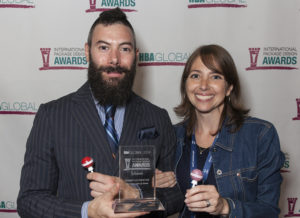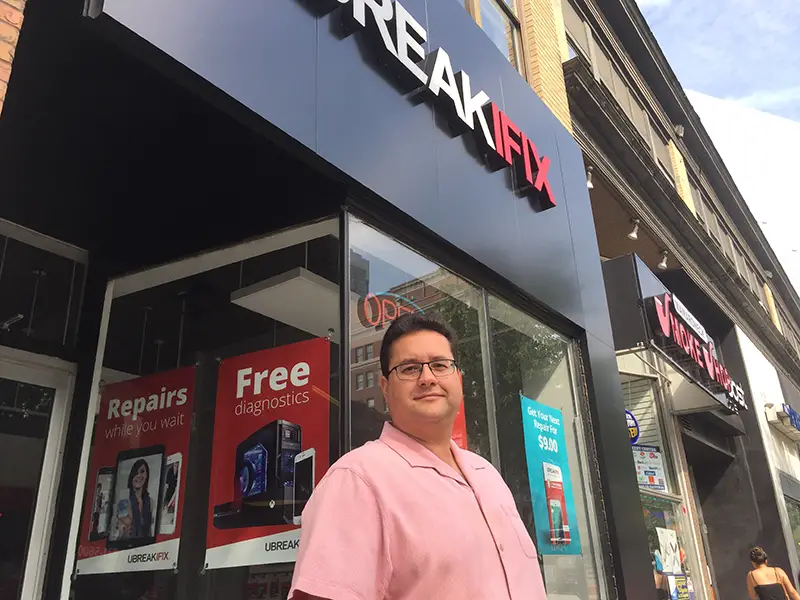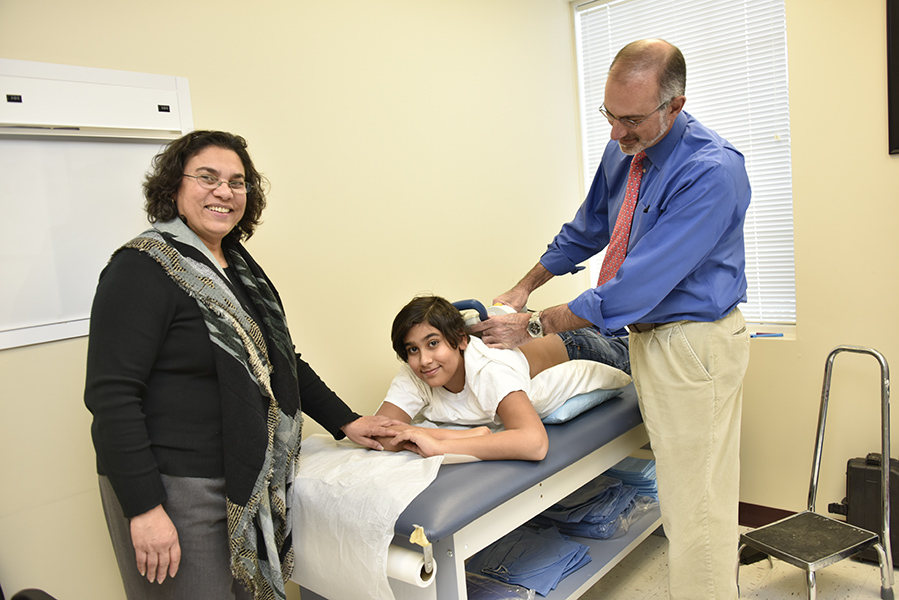
The creators of Flickable lip glosses, a playful product line packaged in lollipop-like dispensers, are crying foul against a Canadian competitor and former partner whom they claim glossed over the niceties of patent and trademarks law with its Lolli Gloss line of lip glosses.
Flickable LLC of Ossining in July sued Factum Partners Inc. of Oakville, Ontario, for patent infringement in U.S. District Court in White Plains.
Flickable is the brainchild of husband and wife Kevin David and Catherine Banks. The origin story goes back to 2008, when the couple was watching television in their Manhattan apartment and David flicked Banks. She told him to stop flicking. He replied, “But you are so flickable!”
The playful moment became the germ of an idea. David immediately thought of personal care products, he said in a telephone interview, and he eventually settled on the idea of a lollipop-like container for lip gloss.
All lip glosses look the same, he said. They come in cylinders or wands or squeezable tubes. “The market doesn”™t need another lip gloss. What it needs is innovation. Something that says, ‘I”™m different. I”™m not like everybody else,’” said David.
Their lollipop-like dispenser won an international package design award in 2014.
The couple worked with labs on a formula. The glosses had to be vegan, cruelty-free and gluten-free, David said. They had to provide moisture, softness, a hint of plumping, sparkle, shine and five scents and flavors. They could not be sticky or tacky. “It addresses every woman”™s lips, needs and wants,” he said.
The couple, who moved to Ossining from Manhattan in need of more space for their growing three-basset-hound household, invested their savings in designs, molds, tooling and components. Matthew Mendenhall, a professional photographer, and his wife, Erin McMurray, an editorial stylist, from Los Angles, joined in the venture as minority partners.
 Working from their Ossining home, they launched the product in the international professional market in 2015, charging salons and spas $18 per unit. David said the glosses were popular but the professional market was the wrong target. The growth opportunity is in the mass market, at $5 per unit, he said.
Working from their Ossining home, they launched the product in the international professional market in 2015, charging salons and spas $18 per unit. David said the glosses were popular but the professional market was the wrong target. The growth opportunity is in the mass market, at $5 per unit, he said.
He said young women ages 16 to 20 are the “strike zone” but anyone with a youthful state of mind will buy the glosses.
“Someone who has just got out of the gym doesn”™t want to eat dessert, but she wants a sweet treat for her lips that doesn”™t add to her waistline” said the entrepreneur.
Manufacturing in New Jersey was too expensive, so last year Flickable partnered with the Canadian company, Factum, to find ways to reduce manufacturing costs, increase production and identify worldwide distributors.
Factum agreed to keep Flickable”™s product information confidential, the lawsuit says, after which Flickable disclosed customer lists and manufacturing know-how.
David visited two Chinese factories to inspect samples. The work was of poor quality, according to the lawsuit. A plumping agent was missing from the gloss. Flavors were not distinctive. Packaging was not completed. Flickable found another Chinese company to manufacture the glosses.
Last March, Flickable introduced its mass-market glosses at an international trade show in Bologna, Italy. It is aiming for a spring 2018 launch in the U.S.
Flickable and Factum ended their affiliation on May 31, but Factum has refused to return Flickable”™s confidential materials, according to the lawsuit. Less than a month after their arrangement collapsed, the Ossining couple discovered that Factum plans to bring out Lolli Gloss by the end of August.
The product similarities are striking.
Lolli Gloss features the same five colors, similar flavors and identical containers as the Flickable line. The Canadian company describes its glosses as cruelty-free and gluten-free and uses the same leaping bunny logo certifying that no animal tests were used in developing the glosses. Marketing materials mimic Flickable”™s design, including the use of the same model in the same pose.
Even the name “Lolli Gloss,” the lawsuit says, was mentioned in an email a year ago from David to Factum”™s founder and president, Tom Greenwood.
Flickable accuses Factum of breach of contract, trademark infringement, patent infringement and misappropriation of trade secrets.
Greenwood responded that Factum created, designed and manufactured the Lolli Gloss formula and container for the global market outside of the U.S. “Thus, Factum”™s ex-U.S. activities are beyond the reach of any of Flickable”™s false and misleading claims of global intellectual property infringement,” said the Canadian.
Flickable wants the court to stop Factum from selling glosses that could be confused with Flickable”™s products. It is asking for damages up to $2 million for each type of counterfeit product.
Greenwood who is named as a defendant in the lawsuit, said the company will vigorously defend itself. “It is extremely troubling when a company decides to use scare tactics on our partners,” he wrote.
So far, David said, Flickable has not turned a profit, but he thinks the company is about to take off. It has sold 450,000 units and he expects to ship 1.5 million units next year.
David and Banks plan to widen the range of colors and to introduce a lip balm and a lip glaze. That”™s just a beginning, David said. The flickable concept can encompass any consumer product that is fun, colorful, fresh.
“It”™s a lifestyle,” he said. “You”™ve got to live flickable.”


















One of the most effective ways to fight the fake markets is to uniquely serialize the original goods and empower the customers to check the goods. Serialization is maybe the most powerful and cost effective anti-counterfeit solution, the one offered by my-validactor are immediately available, easy to implement and at a cost near to zero.